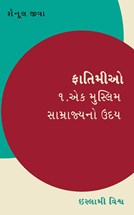‘3’

The Philosophy of Mediation: Questions and Responses from Diverse Parts of the World and Especially from the Islamic Tradition
In this paper, the author highlights the fact that the concept of mediation exists in many cultures and traditions in the world and that, unfortunately, its centrality as a dispute resolution mechanism in Islam is obfuscated by a negative image of the faith shaped largely by media images internationally. Through a series of mediation training programmes developed for a Muslim community and implemented globally, the author raises a number of questions which are relevant to the global discourse in the field of mediation today.

IIS Summer Programme on Islam
The Institute of Ismaili Studies, in collaboration with Emory University, conducted its first residential Summer Programme on Islam for university students from July 21-August 3, 2002 in Atlanta, Georgia, USA. Thirty-two students from across North America participated in the intensive two-week residential course.

IIS Launches Two Recent Publications in Dubai
Two recent IIS publications were launched at the Ismaili Centre in Dubai. These included The Ismailis: An Illustrated History and An Anthology of Qur’anic Commentaries – Vol. 1: On the Nature of the Divine. Held on 3 April 2009, the programme marked the Institute’s first major book launch in that region.

IIS Scholars and Students Present Papers at WOCMES-2
The Second World Congress for Middle Eastern Studies (WOCMES-2), hosted by the Royal Institute for Inter-Faith Studies in Amman, Jordan on 11-16 June 2006, brought together scholars from diverse fields within the humanities and social sciences from around the world to exchange research and ideas. Among the 1,250 presentations, there were papers by 3 individuals affiliated with The Institute of Ismaili Studies (IIS) – Dr Ali Qutbuddin, Yahia Bayza and Sabrina A. Bandali.

IIS Scholar Speaks at a Conference in Cairo
Dr Reza-Shah Kazemi presented a paper at the conference: “Al Azhar and the West - Bridges of Dialogue”. Held in New Cairo from 3 to 5 January 2009, the conference was convened by the Rector of Al Azhar University, Dr. Ahmed Mohammed El Tayyeb. Muslim scholars in the West were invited to this conference to serve as "bridges of dialogue" by advising Al Azhar's scholars how to communicate Al Azhar's perspective within the norms of Western discourse.

My First Meeting with the Ismailis in Persia
"I came in touch with the Ismailis for the first time in Persia, in February 1912. The world was quite different then. No one imagined that the Great World War I, with all its misery and suffering, was just around the corner. Persia was still living in her ancestral mediaeval style, and her affairs were largely going on in their traditional ways, as they were going on for centuries."

Vladmir Alekseevich Ivanow
Vladimir Alekseevich Ivanow, (b. St. Petersburg, Russia, 3 November 1886, d. Tehran, 19 June 1970; variously spelt Ivanov and Wladimir), was a Russian orientalist and leading pioneer in modern Ismaili studies. His father was a military doctor, and he spent his youth in his native city and Moscow, graduating in 1907 with distinction as a gold medallist from a gymnasium in St. Petersburg. From 1907 to 1911 he studied at the Faculty of Oriental Languages of The University of St. Petersburg.


Launch of IIS Digital Curriculum promotional video
The Department of Curriculum Studies is pleased to launch a three-minute promotional video to raise awareness and promote the IIS Digital Curriculum (IISDC) e-book platform.

Spiritual Resurrection in Shiʿi Islam

Keynote address two: The Renaissance of Shiʿi Islam in the 15th–17th Centuries

The Proof of God

Towards New Horizons in Islamic Studies
What role does the Islamic Studies have to play within the larger field of Education? What do we mean when we use the phrase Islamic Studies? Examining key concepts and issues that concern all interested in the study and teaching of Muslim culture, in all its varied aspects, the author explores the larger issues of the presentation of Islam and Muslim societies, both past and present.

The Ethics of the Public Square: A Preliminary Muslim Critique
Liberal perspectives on civil society tend to consign ethical issues to the private sphere, in keeping with the Euro-American ethos of a secular public culture. This article offers a Muslim perspective that argues in favour of an ethically-engaged public sphere, yet one that takes on board human rights and the rule of law, and is sympathetic to communitarian values.

Kinship, Camaraderie and Contestation Fatimid Relations with the Ashraf in the Fourth AH /Tenth CE century
The founding of the Fatimid caliphate across the southern Mediterranean, and then in Egypt, Syria and the Hijaz at the turn of the fourth AH / tenth CE century, necessitated its negotiation with the ashraf, those who claimed lineal descent from the Prophet Muhammad, and who by this time had gained significant influence as a social class based on their charismatic descent.
